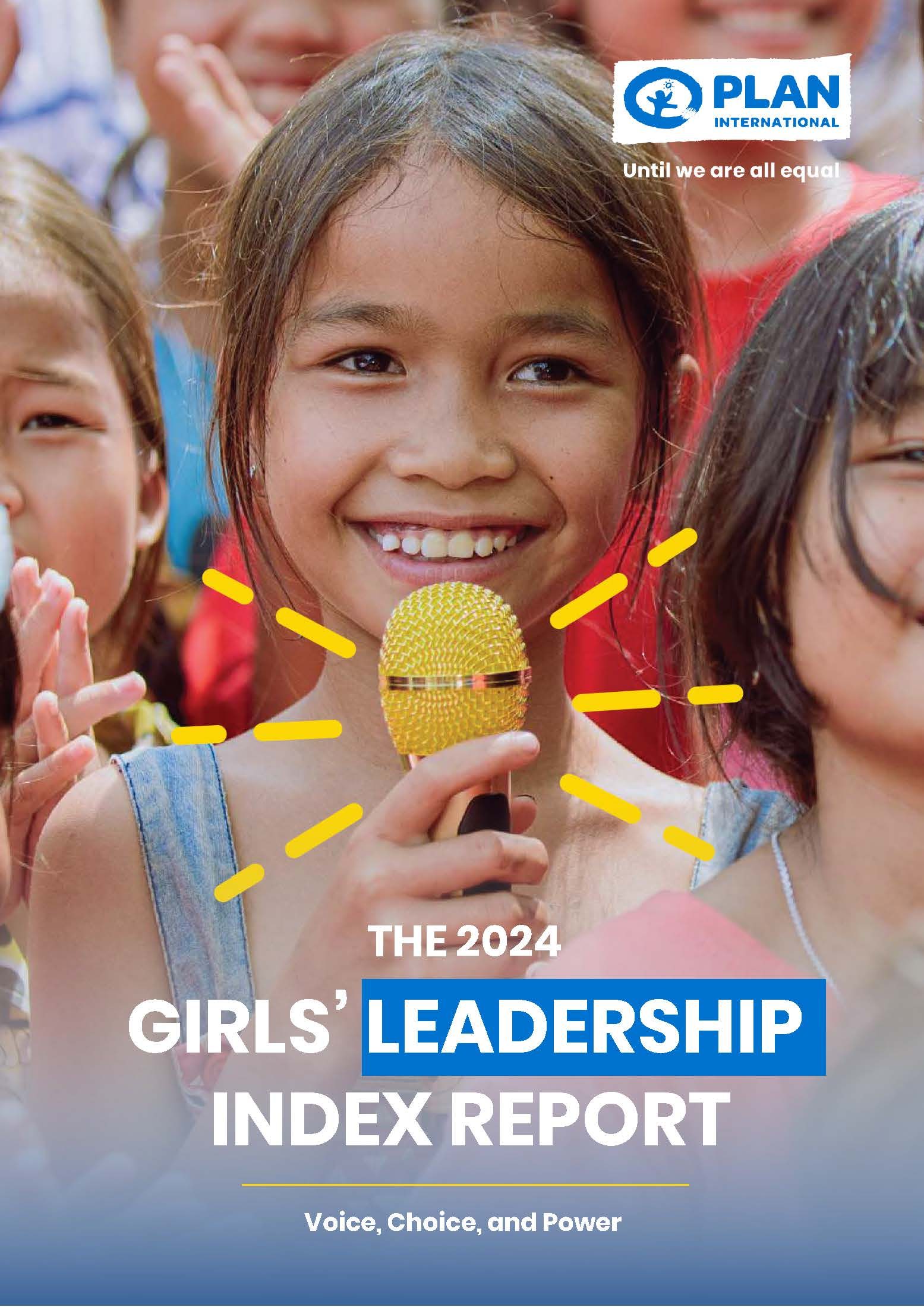How Systemic Inequalities Are Holding Back Girls’ Leadership in Asia-Pacific – New Report
Press Release
Girls in the Asia-Pacific continue to face gender-related barriers and inequalities that hold them back from realising their full potential, Plan International’s newest study reveals.

The 2024 Girls’ Leadership Index
Across the vast region – home to 60% of the world’s youth population – discriminatory attitudes and practices towards girls and young women are limiting their abilities in most areas of life.
Plan International’s 2024 Girls’ Leadership Index (GLI) provides a unique dive into the barriers and opportunities shaping the leadership potential of adolescent girls and young women.
Based on data from 33 countries across the Asia-Pacific region, the findings paint a picture of progress punctuated by persistent inequalities, offering a sobering reminder of the work still required to break entrenched cycles of gender disparity.
“A better future for all hinges on empowering girls. As our region faces growing challenges like the climate crisis, economic inequality, and political instability, it’s crucial to address the unique hurdles girls encounter,” Bhagyashri Dengle, Regional Director of Plan International Asia-Pacific, said.
“Empowering girls is not just about improving their lives – it is about securing a better future for entire communities and nations.”
“A better future for all hinges on empowering girls.”
Bhagyashri Dengle, Regional Director of Plan International Asia-Pacific
Disparities in girls’ leadership opportunities across Asia and the Pacific
The study highlights stark disparities in girls’ leadership opportunities across Asia and the Pacific.
In Asia, Singapore, Thailand, and the Philippines top the rankings, excelling in girls’ education, protection, and legal frameworks, while Afghanistan, Pakistan, and Brunei Darussalam face persistent challenges with regards to education, economic opportunities, and climate action, severely limiting girls’ potential.
In the Pacific, Australia, New Zealand, and Fiji lead in multiple domains, including education and political representation, while Papua New Guinea, Nauru, and the Solomon Islands lag behind, particularly in health and leadership representation.
Notably, Cambodia achieved the most significant improvement, driven by advancements in health, while Brunei Darussalam saw a sharp decline in climate action performance.
Unlocking girls’ potential
Despite these gaps, barriers to girls’ leadership persist across the region. According to Plan International, the key to unlocking girls’ potential lies in addressing socio-economic barriers, dismantling harmful cultural norms, and ensuring equal access to education, healthcare, as well as economic opportunities.
Conversely, gender-based violence, early marriage, together with weak legal frameworks for gender equality pose systemic challenges to girls’ agency, demanding urgent attention..
The child rights and humanitarian NGO is calling for more efforts to engage girls in youth-centred initiatives, while increasing funding for girls’ organisations. The creation of supportive environments is also critical, including developing inclusive policies, ensuring safe spaces for expression, and addressing regional challenges like climate change and shrinking civic space.
Governments should further adopt gender quotas, strengthen legal frameworks, and engage the private sector to promote digital inclusion and gender-diverse leadership, as well as sustainable practices to ensure a lasting impact.
Together, these actions will create an environment where girls can thrive as empowered leaders in the Asia-Pacific.
In the words of Saima, a young girl from one of Plan’s programme countries: “We must break the myths that limit us and challenge the beliefs that girls cannot be leaders or changemakers. We also need more agencies and allies to support us in gaining equal power, freedom, and representation.”
Categories: About Plan International, Youth empowerment

